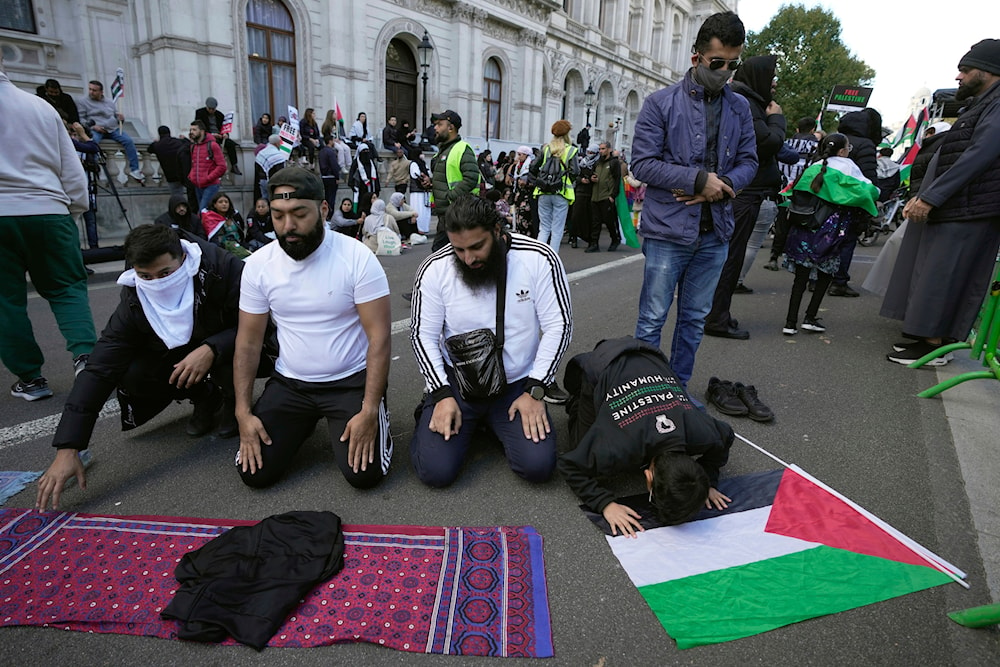400 scholars condemn new 'extremism' definition targeting UK Muslims
The imams and scholars vocalize their worries regarding Prime Minister Rishi Sunak’s alleged dedication to promoting unity with the Muslim community.
-

Protesters pray during a pro-Palestinian demonstration in London, Saturday, Oct. 14, 2023. (AP)
More than 400 imams and religious scholars have condemned the recent definition of extremism introduced by the British government, which singles out various Muslim organizations.
The imams announced in a joint letter that right-wing communities secretary Michael Gove, who unveiled this definition, has a history of singling out Islam and Muslims under the cover of “Islamism” and is infamous for launching campaigns against Muslims in association with anti-Islam racists and Islamophobes.
"We note that the discourse of 'extremism' relies on the faulty and academically baseless neoconservative notion that ideology is a cause of political violence," they stated.
"We observe that Gove has a history of targeting Islam and Muslims under the label of 'Islamism'," they stressed, then added, “We further observe that Gove has deep connections with pro-Israel lobbies that propagate Islamophobia and anti-Muslim conspiracy theories."
“It appears the underlying motivation behind this announcement is the dissatisfaction among neoconservative, pro-Israeli figures within the Government towards legitimate activism opposing Israeli and Zionist aggression against Palestine, notably, Gaza," the imams emphasized.
The imams and scholars further vocalized their worries regarding Prime Minister Rishi Sunak’s alleged dedication to promoting unity with the Muslim community, stressing that the way the government is acting only shows a preference for other divisive strategies instead of genuine dialogue and involvement.
Last week, the Muslim Council of Britain (MCB), the largest organization representing Muslims in the UK, voiced its apprehension about the potential targeting of certain affiliated organizations under the introduced definition.
UK adds a new definition to 'extremism', raises alarms on free speech
On March 14, the UK introduced a new definition of extremism as confirmed by senior cabinet minister, Michael Gove, who claimed that the move was intended to “protect democratic values” by being “clear and precise in identifying the dangers posed by extremism.”
However, some advocacy groups and legal experts warned that the rights of many will be affected, and the only route to challenge this would be through court.
Criticism arose from rights groups alongside concern from three former Conservative Party home secretaries, who said that the introduction of this definition was for political gain.
The Archbishop of Canterbury, Justin Welby, who is the head of the church and a peer in the House of Lords, and the archbishop of York released a statement that the definition “not only inadvertently threatens freedom of speech, but also the right to worship and peaceful protest, things that have been hard won and form the fabric of a civilized society.”
“Crucially, it risks disproportionately targeting Muslim communities, who are already experiencing rising levels of hate and abuse," they added.

 3 Min Read
3 Min Read








